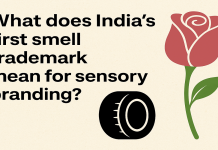This article is written by Nehal Wagle, pursuing a Certificate Course in Trademark Licensing, Prosecution and Litigation from LawSikho.
Table of Contents
Introduction
The dawn of the digital era brought along with itself advancement in transport and telecommunication. There seems to be barely any activity that has remained untouched in this digital era. The internet today has become the lifeline of the people in a way that life without the internet would be like saying life without oxygen. The dependence on the internet has grown manifolds with each passing day. However, it is rightly said that ‘an invention that is quickly accepted will turn out to be rather alteration of something that already existed’. Infringement of intellectual property rights has been an old phenomenon and the era of digitalisation accounted for much newer ways of infringement.
Importance of trade marks
Trade marks are one of the most important assets of any business. The value and goodwill attached to a mark indicates the popularity of a brand. Brand representation is today a multi-lingual, global challenge. In the digital age, the infringement of trade marks may cause a significant damage to the goodwill and reputation of the brand owner. Further the internet age has changed the dynamics of how trade mark disputes are to be handled.
Jurisdictional issues
This brings us to an important question with regards to the of Jurisdictional issues in cases of Trade Mark infringement.
Let us first try to understand traditional jurisdictional issue of trade marks in India.
Statutorily, section 20 of the Civil Procedure Code,1908 contains provisions with respect to institution of suits. A suit for Infringement of Trade Marks can be instituted-
- At a place where the defendant or defendants (if there are more than one defendant) at the time of commencement of the suit actually or voluntarily resides or carries on the business or personally works for gain.
- At place where the defendant or defendants (if there are more than one defendant) at the time of commencement of the suit actually or voluntarily resides or carries on the business or personally works for gain and in any other case where the court exercises its discretion to allow the institution of suit even when the defendant not reside or carry any business or work for personal gain within its limits.
- In cases where the cause of action arises either wholly or in partly.
The Trade Mark Act,1999 introduced an additional forum for the trade mark owners to initiate action in case of trade mark infringement suits.
- As opposed to instituting suits in place where the defendant resides or carries on business or personally works for gain the Section 134 of the Trade Marks Act,1999 enables a registered trade mark owner to institute a suit for infringement of a registered mark or relating to right registered in a trade mark or in case of passing off action to be instituted in District courts within whose local jurisdiction the person or persons actually and voluntarily resides or carries on the business or personally work for gain.
These decisions delivered by various high courts across the nation have brought clarity with regards to the issue of choice of Jurisdiction.
The Honourable Supreme Court while analysing the issue of Jurisdiction in Indian Performing Rights Society Ltd. v. Sanjay Dalia & Anr laid down observations.
The Honourable Court while answering the question of jurisdiction laid emphasis on the legislative intention behind the rationale embodied under Section 62 of the Copyright Act,1957 and the section 134 of Trade Marks Act,1999 was to provide additional forum to Section 20 of CPC and allow the plaintiff to register a suit within local limits of the courts, wherein the body incorporate either has its principal/registered office or branch/subordinate/ancillary office.
While construing a harmonious construction between Section 20 of CPC and section 134 of the Trade Marks act, Delhi High Court in Ultra Home Construction v Purushottam Kumar Chaubey & Ors, where the division bench brought forth 4 different types of scenarios which answers the question with regards to the jurisdiction of courts–
- In case plaintiff has a sole office
In such cases, even though the cause of action has arisen at some other place, the plaintiff can institute a suit only within the limits of the place where his sole office is situated.
- In case where the plaintiff has a principal office at one place and a subordinate/branch office at another place and the cause of action has arisen at the place within the limits of the principal office
In such a case, the plaintiff may institute a suit at the place where his principal office is situated and not at the place of his subordinate office.
- In case is where the plaintiff`s principal office is at one place and the cause of action has arisen at the place within the limits of the subordinate office
In this case, the plaintiff would be deemed to carry on business at the place of his subordinate office and not at the place of the principal office.
- The fourth case is where the cause of action arisen neither at the the principal office nor at the place of the subordinate office but at some third place
In this case, the plaintiff would file a suit at the place of his principal office and not the subordinate office. This is based on the assumption that the Plaintiff carries on the main business at the place of its principal office and not at the place of the subordinate office.
Jurisdictional issues of trade marks in the digital era
The Jurisdictional issues of the Trade Marks in the digital era caused a great deal of concern to the proprietor of trade marks as it becomes extremely difficult to trace the location of the infringer over the internet. So, the question that arises in the minds of the proprietors is, where can a suit for infringement of trade marks be filed?
-
India TV, Independent News Service Pvt. Ltd. v. India Broadcast Live LLC & Ors.
In the instant case the Honourable Delhi High Court while answering the jurisdictional issue that arose in the matter involving Passing Off a Domain name of the Plaintiff by a foreign Defendant. The Honourable court while analysing the jurisdictional issue in the matter beforehand stayed the proceedings initiated by the Defendants before the Arizona District Court on the ground that the damage to the Plaintiff‟s goodwill and reputation was in India, as the Plaintiff‟s News Channel was broadcasted in India and for Indian audiences. By virtue of this fact, in the instant case the Honourable Delhi High Court exercised personal jurisdiction over the defendants.
-
Hon’ble Bombay High Court in People Interactive (I) Pvt. Ltd. v. Gaurav Jerry and Ors
While deciding the extensive use of trade mark in meta-tags for the first time, it also brought with itself an issue pertaining to jurisdiction in cyberspace. The Hon’ble Court observed that in an action for infringement and passing off, ‘the extra territorial nature of the websites is not restricted to territorial boundaries/ limits and that the courts shall have the jurisdiction to entertain a suit even in cases where the Defendant resides and carries on business outside the jurisdiction of a Court provided that the website is not confined to territorial limits, plus is interactive and is globally accessible from anywhere, including the place where the suit is filed.’
Applying the principle embodied in the judgement it can be rightly said that while dealing with the jurisdictional issues of trade marks in cyberspace it is necessary to ensure that the impugned website is interactive and internationally accessible and is not restricted to territorial boundaries.
-
Ht Media Limited & Anr v. Brainlink International, Inc. & Anr.
In the instant case the Petitioner, a leading national news agency found an entity in New York infringing upon its trademark rights by using the domain name www.hindustan.com identical/deceptively similar to plaintiff’s trade marks Hindustan Times which were registered as a trade mark in India.
The Court while exercising its extra-territorial jurisdiction over the defendant based out in New York and granted an anti suit injunction against its use of the domain name. The honourable Court pointed out:
- The filing of the instant suit by the defendant in New York is nothing but vexatious and oppressive as the plaintiff does not have any registered trade mark rights in the USA.
- The act of the defendant is an attempt on his part to legitimise the infringement of the Plaintiff`s trade mark. The trade marks of the plaintiffs are registered only in India and that the goodwill of the plaintiff extends across the international borders.
- On basis of the above observations it was held that the plaintiff prima facie made a case and hence was granted an anti suit injunction.
Conclusion
The above stated judgements and legislation bring about a clear view of the Jurisdictional issues and its remedy under the law. Thus, it is clear that in order to understand the jurisdictional issues in trade marks it is necessary to draw harmonious construction between Section 20 of Civil Procedure Code, Section 134 of the Trade Marks Act,1999 and the decisions delivered by the Honourable courts.
References
- https://indiankanoon.org/doc/51545606/
- https://indiankanoon.org/doc/123737198/
- https://indiankanoon.org/doc/1043775/
- https://spicyip.com/wp-content/uploads/2014/07/shaadi.com-order-1.pdf
- http://delhihighcourt.nic.in/writereaddata/orderSan_Pdf/jis/2020/63435_2020.pdf
Students of Lawsikho courses regularly produce writing assignments and work on practical exercises as a part of their coursework and develop themselves in real-life practical skill.
LawSikho has created a telegram group for exchanging legal knowledge, referrals and various opportunities. You can click on this link and join:
 Serato DJ Crack 2025Serato DJ PRO Crack
Serato DJ Crack 2025Serato DJ PRO Crack











 Allow notifications
Allow notifications


